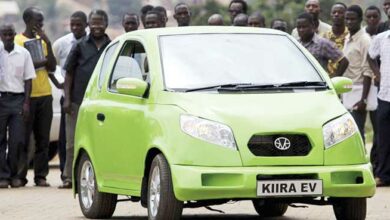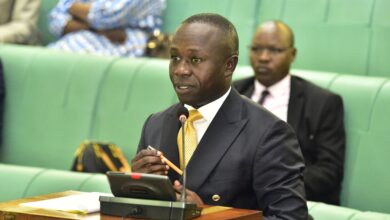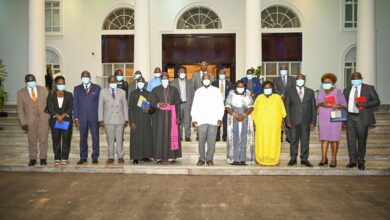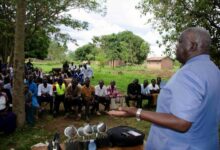Uganda on track to produce first oil by 2025
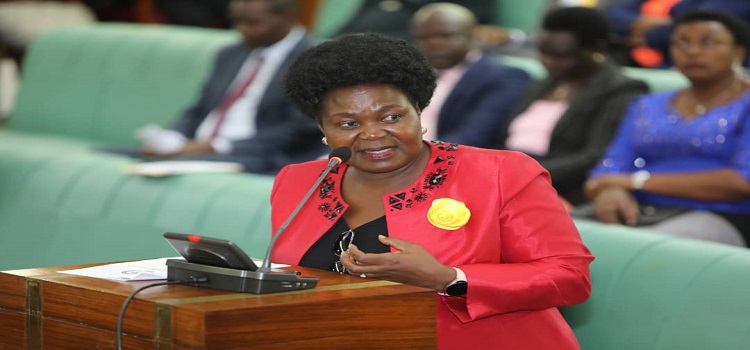
KAMPALA, October 26, 2023 – The Government of Uganda is on track to ensure that the first drop of oil is produced by the end of 2025, according to Ruth Nankabirwa Ssentamu, the Minister of Energy and Mineral Development.
“Government and its partners are working tirelessly and I am happy to report that we are on track to have first oil by the end of 2025,” Nankabirwa said, while presenting a statement on the status of oil and gas projects in the country to Parliament on Wednesday.
According to the minister, government has already drilled a total of 11 oil wells; eight in the Tilenga and three in the Kingfisher area, with capacity to produce up to 190,000 barrels and 40,000 barrels of oil per day respectively. In total, the production will require a total of 457 wells and 35 well pads.
The development and production wells at the Kingfisher field in Kikuube district was launched in January 2023 by President Yoweri Museveni, while those at the Tilenga Project located in the Albertine Graben within the Buliisa and Nwoya districts commenced in June 2023.
“Construction of the Central Processing facilities both at Kingfisher and Tilenga is ongoing and on schedule to be ready by 2025. Tilenga’s capacity Central Processing Facility which is under construction is currently 33 percent complete while Kingfisher’s capacity Central Processing facility is at 12 percent,” Nankabirwa said.
As far as oil exploration is concerned, Nankabirwa said that the Ministry is increasing its resource base by giving more licences to companies.
“We issued exploration licences to Armour Energy Ltd over the Kanyawataba area, Oranto Petroleum Ltd over the Ngassa Shallow and deep in 2017, and more recently to UNOC over the Kasurubani block and DGR Global over the Turaco block,” the minister said.
She added that the Ministry also plans to conclude the formulation of a comprehensive National Petroleum Policy before the end of this financial year.
“The new policy will create a conducive environment for faster and efficient exploration, development, production, and commercialisation of discovered resources and utilisation of petroleum products in the country while acknowledging the energy transition initiatives,” she said, adding that government also has its hands on the deck on the development of 60,000 barrels per day oil refinery in Kabaale, Hoima district.
On the East African Crude Oil Pipeline [EACOP], Nankabirwa said civil works commenced in August 2023, and the Resettlement Action Plan [RAP] for affected persons within the 10 districts where the EACOP crosses is ongoing.
Napak District Woman Representative, Faith Nakut sought assurance from the minister that the first oil will be realised by the end of 2025 considering the slow progress of oil well constructions.
“We are required to have 457 wells versus the accomplished 11 wells. The minister should give us assurance because, in my view, that speed is slow,” Nakut said.
Christine Apolot, Kumi district Woman Member of Parliament also called for consistency in the oil production timelines.
“Originally, about 2 years back, the year Ugandans were given for the first production of oil was 2023. So I want to plead with the minister to be consistent with these messages because the population is not going to believe us,” Apolot said.
Nankabirwa said that the construction of oil wells started this year and by 2025, the number of wells will have been realised.
The minister also blamed the deadline shifts to non-government organisations that have been de-campaigning the 1,443 kilometres EACOP project that transport oil from Hoima, Uganda to the port of Tanga in Tanzania.
In February 2022, TotalEnergies and its partner China National Offshore Oil Corporation [CNOOC] reached a deal with Uganda and Tanzania to invest more than US$ 10 billion in developing crude oil production.
Uganda discovered crude oil reserves near its border with the Democratic Republic of Congo in 2006, but production has been repeatedly delayed by disagreements between the government and oil firms over tax and development strategy, and a lack of infrastructure.
Government geologists estimate Uganda’s gross reserves at 6 billion barrels, while recoverable oil is seen at 1.4 billion barrels.
https://thecooperator.news/uganda-relieved-as-intercontinental-summit-clears-eacop-project/
Buy your copy of thecooperator magazine from one of our country-wide vending points or an e-copy on emag.thecooperator.news

